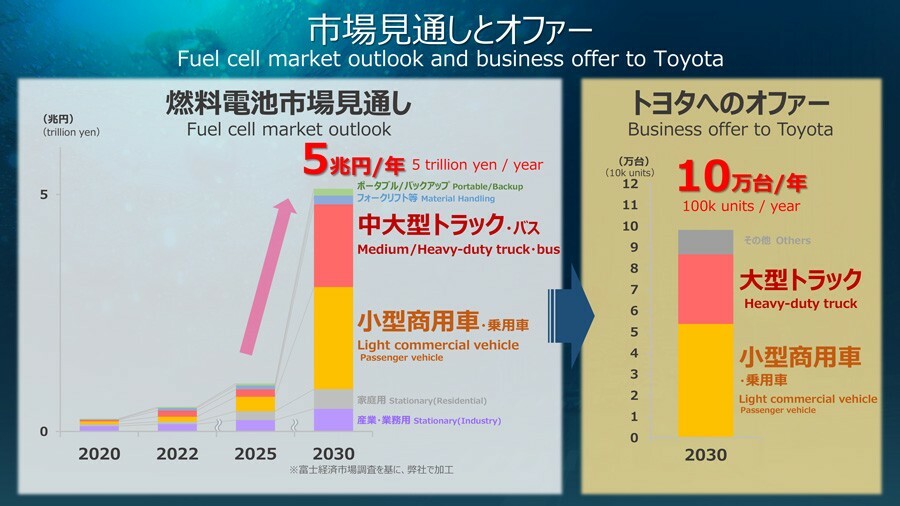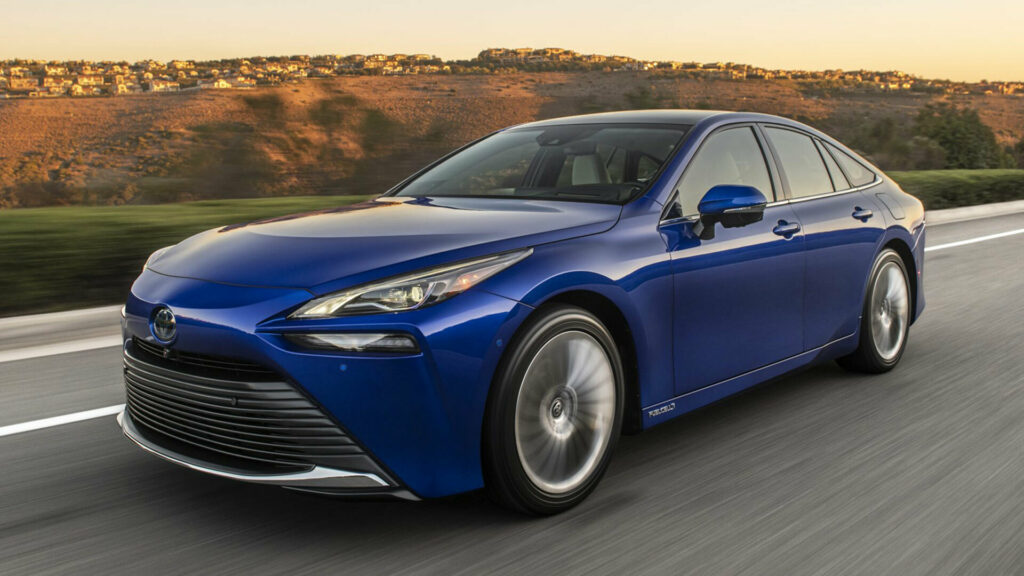Toyota is gearing up to launch their next-generation of electric vehicles in 2026, but the company isn’t giving up on hydrogen. Quite the opposite as the automaker has released new details about their next-generation fuel cell.
Since high prices and a lackluster refueling infrastructure are holding fuel cell vehicles back, Toyota is aiming to address both issues to make hydrogen-powered vehicles more viable.
In particular, Toyota aims to launch “innovative next-generation fuel cells” in 2026. These are designed for commercial use and the automaker expects the cost of the fuel cell stack will drop by 50% compared to today’s models. Furthermore, the range is expected to increase by 20%.
More: Toyota GR H2 Racing Concept Is A Hydrogen-Powered Hybrid Racecar For Future Le Mans
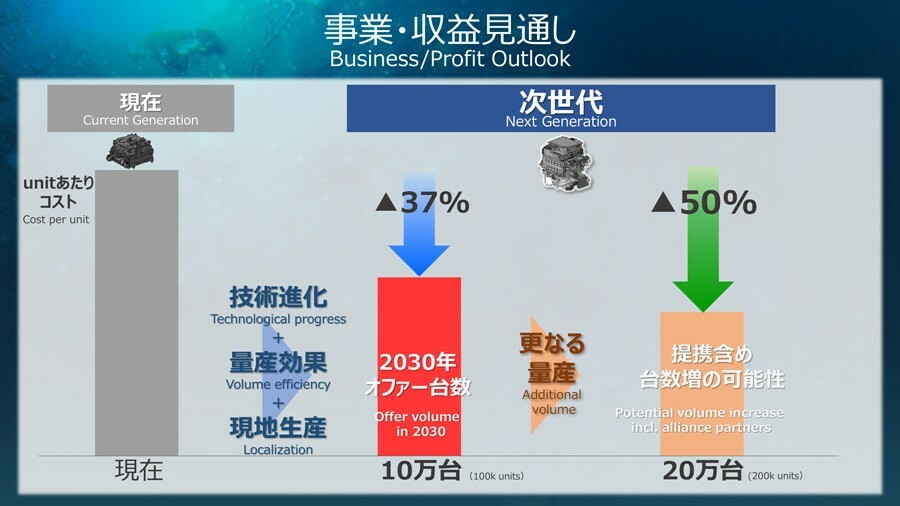
The company also said the powertrain would require less maintenance than a traditional diesel engine. Toyota suggested the improvements would be due to a variety of factors including a lower number of cells as well as a 130% increase in electrode power density.
Toyota went on to say their next-generation fuel cell system will see a 37% reduction in cost through “technological progress, volume efficiency, and localization.” If the company sees demand for 200,000 units in 2030, Toyota will be able to reduce costs by 50% and “generate a solid profit.”
Speaking of lowering costs, Toyota is working to standardize hydrogen fuel tanks for large commercial vehicles. The company says this could reduce “manufacturing costs by 25% by unifying the tank standards of European, U.S., and Japanese companies and consolidating their quantities.”
Speaking of fuel tanks, the automaker is exploring a Multi Hydrogen Tank concept that would enable vehicles to use a number of relatively small hydrogen fuel tanks. The idea would allow for scalability as larger vehicles could use more tanks, while smaller vehicles could use less. This could result in significant savings as one tank size could be used in numerous vehicles and pieces of equipment.
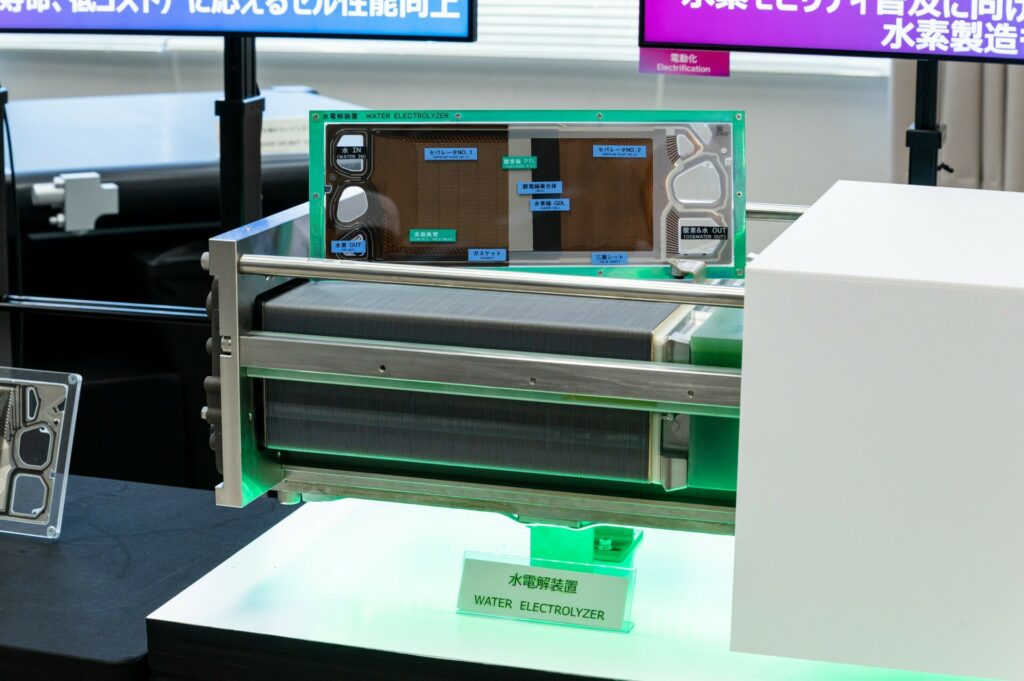
Toyota is also working to support hydrogen production to make FCVs more viable. As part of this effort, they’ve developed a new water electrolyzer that produces hydrogen by electrolyzing water.
The company also aims to produce hydrogen from biogas. An initiative in Thailand will see the fuel “derived from local chicken manure and food waste” later this year.
While Toyota is still betting on fuel cells, the company admits the “price of hydrogen is still very high.” To help lower the cost, the company will continue to work with partners to produce, transport, and use hydrogen.
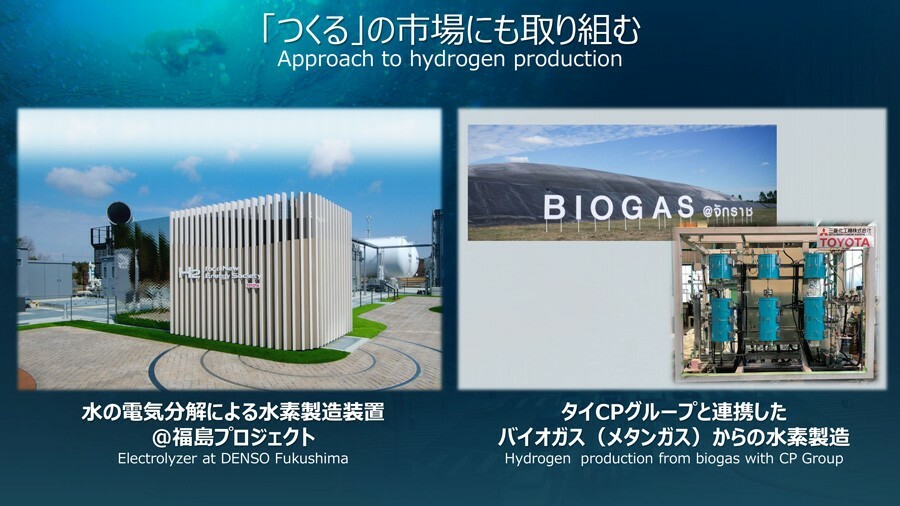
In the near term, Toyota will establish a new organization called “Hydrogen Factory” in July. It will consolidate the company’s efforts and streamline the decision making process as there will be “one leader, from sales to development and production.”
While FCVs have taken a back seat to battery electric vehicles, Toyota expects there will be a huge jump in demand between 2025 and 2030. The biggest markets are expected to be China, Europe and North America, and the automaker said the fuel cell market is expected to reach ¥5 trillion ($36 / £28 / €33 billion) annually.
